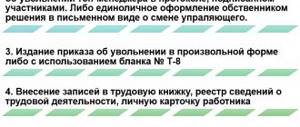What is the difference between adoption and guardianship?
Raising an orphan child requires not only psychological and pedagogical, but also financial resources, therefore the state provides several forms of material support:
- Payment to the guardian/trustee under a paid guardianship agreement.
The legislation (Clause 2, Article 16 of the Federal Law “On Guardianship and Guardianship”) provides for two main forms of guardianship/trusteeship: paid and gratuitous.
If paid guardianship/trusteeship is assigned, the PCO enters into an agreement with the guardian/trustee, on the basis of which he is paid monthly sums of money - payment for fulfilling the responsibilities of raising the child. The guardian/trustee has the right to spend these amounts of money at his own discretion. In addition, the period of performance of duties may be included in the length of service of the guardian/trustee.
If guardianship/custody is free of charge, there is no payment for raising the child.
- A one-time payment after accepting an orphan into the family.
In 2021, the amount of a one-time payment per child is 17,479 rubles 73 kopecks (according to Article 12.2 of Federal Law No. 81, taking into account indexation).
To receive a one-time payment, the guardian/trustee must contact the social security authority no later than 6 months after the appointment of guardianship/trusteeship. Within 30 days, the amount of money is credited to the bank account of the guardian/trustee.
The lump sum payment has no intended purpose, which means that the guardian or trustee has the right to dispose of the received amount of money at his own discretion.
- Monthly payments for the maintenance of a ward child.
The amount of monthly payments is set at two levels: federal and local, and therefore depends on the place of residence of the guardian/trustee with the ward child (according to the Federal Law “On State Benefits for Citizens with Children”). In addition, the amount of payments may depend on the age and health of the child.
For example, in 2021 in Moscow, 6,500 rubles are allocated monthly for a child under 12 years old, after 12 years - 22,000 rubles, for a disabled child - 27,500 rubles. In other cities, payments are lower: from approximately 5,000 rubles to 15,000 rubles monthly.
Amounts of money must be spent on the needs of the child. The guardian/trustee annually submits to the social protection authorities a complete report on the funds received and spent.
You can read more useful information about payments, allowances, benefits for the maintenance of an orphan child placed under guardianship/trusteeship in our articles “How much do they pay and what payments are there for guardians of minor children” and “Until how old do guardians pay for a child?”
Expert opinionAlexey PetrushinLawyer. Specialization: family and housing law.
The decision to take an orphan from an orphanage and take care of his upbringing, development, and maintenance is a responsible step. There is a lot to learn, analyze, comprehend, and discuss. But too much thinking and indecisiveness can have the opposite effect - the final decision will not be made.
If you are still in doubt, if you do not have enough legal information or need legal advice, contact our family lawyer for a free consultation. We are ready to answer all your questions by telephone or correspondence. Call the hotline or leave a request for a written response from a lawyer.
A feeling of compassion for children is an innate property of almost all adults. It is especially aggravated among women and spouses who, for one reason or another, cannot have their own children.
The way out of this situation, when treatment, modern IVF methods have not helped, or the mother is not able to use it to give birth to a child genetically close (to at least one of the parents), is to take guardianship of a child from an orphanage.
Before you decide to take custody, write an application to the OOP and begin collecting the necessary documents, you should understand the difference between adoption and registration of guardianship/trusteeship.
Adoption
Adoption is an exclusively judicial procedure that gives the adopter a range of rights and responsibilities that are completely identical to those vested in (biological) parents in relation to their children. Adoption is indefinite. That is, the rights and obligations of the adoptive parents and the adopted child in relation to each other last throughout their entire lives.
An adopted child acquires the right:
- For the patronymic and surname of the adoptive parent;
- To live together with adoptive parents in his house (apartment);
- To be treated equally, not different from the attitude towards other, biologically related (adopted) children in the family;
- For material maintenance until reaching adulthood (including alimony);
- On the property of the adoptive parent by right of inheritance in the event of his death;
- For a share in the adoptive parent's real estate when purchasing an apartment with the participation of maternal capital.
- Siblings cannot be adopted by different persons (with rare exceptions);
- Emancipated persons are not subject to adoption, in accordance with Art. 27 GK, children;
- In fact, a child raised in a family before reaching adulthood is also not subject to adoption;
- Children are subject to adoption no earlier than 3 months, from the moment they are registered with the OOP;
- Adoption by stateless citizens or foreigners is allowed only in cases where it is not possible to find adoptive parents in the Russian Federation.
The adoption procedure itself consists of a number of stages:
- Obtaining the conclusion of the PIO;
- Choosing a child in a childcare center;
- Judicial adoption procedure.
Cancellation of adoption is tantamount to deprivation of parental rights with all the ensuing consequences for the adoptive parent.
In the same way, a man and a woman who are not married (cohabitants), persons of the same sex, leading a joint household, or non-traditional sexual orientation cannot be adoptive parents.
Guardianship/trusteeship is an exclusively administrative procedure. The decision to place a child under guardianship/trusteeship is made by the authorized local government body - the PLO.
- Only one person can act as a guardian;
- A child taken into custody retains his first name, patronymic and last name under which he is registered in the registry office.
- The child does not acquire rights to the guardian's property;
- The guardian has no child support obligations;
- The difference in age is not significant (a brother who has reached 18 years of age can be a guardian in relation to his brothers/sisters aged from 1 month to 17 years);
- The person who has taken custody of the child receives a monetary allowance from the state for his maintenance;
- The permission for guardianship is urgent. Initially issued for 2 years, it can subsequently be extended until the child reaches the age of majority (in case of recognition as incompetent or in need of constant care as a disabled person of group 1 - for life).
- For children over 10 years of age, a form of guardianship/trusteeship is possible, such as a “guest” family, in which the child visits and lives with the family only at certain times (holidays, treatment, during the guardian’s vacation).
This is not a complete list of the differences between adoption and guardianship. Before you adopt a child from an orphanage or register for guardianship, soberly assess your capabilities and the interests of your own children, spouses, and other relatives.
We invite you to read: When to go to work in 2021 after the New Year holidays, working time standards and transfers of days off
What benefits are provided?
To receive payments, spouses must submit an application to the social security department at their place of residence within 6 months after adoption. All payments are regulated by the Federal Law “On State Benefits for Citizens with Children” dated May 19, 1995 N 81-FZ and today include:
- Maternity benefit - 100% of the average monthly salary for all days starting from the date of adoption until 70 days have passed since the birth of one child (or 110 days for the adoption of twins).
- One-time assistance for each child;
- Monthly care allowance for up to 1.5 years and up to 3 years.
In addition, each region is developing its own programs to support families who have decided to take such a step.
To better understand what adoptive parents can claim, see our article on Adopted Child Benefits.
How to take a child from an infant home
In the first year of his life, my child did not want to get away with it and slept exclusively next to him - he could not live without me at all. As soon as he was born and examined/dressed, he was immediately placed in the ward with me. I ate around the clock and little by little. He had to be entertained constantly - just holding him in your arms was not enough, he wanted something to always happen, the landscape around him and his location to change.
Until she was 11 months old, she exclusively breastfed—she categorically refused complementary foods and formulas. Many times thoughts have crossed my mind - what about the poor children in the orphanage? It's scary to even imagine it. If I were you, I would do anything to avoid sending my child there. A friend of mine in a similar situation survived the first six months of her child’s life on accumulated money (she worked until the very last day, she was taken to the maternity hospital straight from her workplace) and loans (what to do, in such a situation this is the only way out - the limit is constantly being increased, and the interest has to be repaid possible by increasing debt).
But her situation was even more complicated - alone in a foreign city in a rented apartment and... She already had one school-age child. Of course, her friends helped her, and she shook her ex-husbands as best she could, since the main thing was to survive, and not to preserve pride. Then, when the child was six months old, I went to work in an intimate salon, where we met (since when my child grew up, and due to economic crises and rampant inflation, my salary was not even enough to live on, there was no choice left) .
Next, the guardianship authorities issue a conclusion on permission to adopt. After this, you can start searching for the child and visiting orphanages. As soon as the baby is selected, the necessary documents are submitted to the orphanage, and the management provides information about the child. A meeting is scheduled between the future parents and the baby.
Baby homes operate on the basis of the Decree of the Ministry of Health “Regulations on the Children’s Home” and the corresponding instructions on the admission and discharge of babies.
Orphans, but more often so-called refuseniks, end up in the Orphanage. Minor mothers, students who prefer getting an education to raising their own child, alcoholics and drug addicts, in the intoxication of the potion, abandon their children and do not think about their future without the tender mother’s hands.
And married couples who do not have children for medical reasons stand in line to give these children their love and care. There are a lot of people who want to take a baby into their family, and it is clear that it is easier to raise a child from infancy. Some, on the contrary, would like to take the baby, but are afraid that the child may end up with genetic defects, chronic diseases, or unknown heredity.
The preparatory stage for adoption begins with the spouses visiting the territorial division of the guardianship authorities to submit the appropriate application.
How it all looks step by step:
- An application is submitted. In response, the OOiP gives a list of documents that need to be collected. The list is established depending on the situation. It is advisable to submit a complete set of documentation immediately upon your first application.
- Passing a medical examination. Potential adoptive parents receive directions from the AOiP, which indicate a list of doctors they need to see.
- Obtaining a medical report and submitting it to the Department of Internal Affairs. When the commission is passed, the final conclusion is submitted to the guardianship authorities.
- Obtaining a housing inspection report. To do this, the guardianship will agree on a date when a representative of the authority will be able to come to the housing where the child may live after adoption. On this day, the POiP employee examines and evaluates the living conditions. Perhaps, to complete the picture, he will interview neighbors about the personal characteristics of candidates for adoptive parents.
- Passing the school for adoptive parents. If everything is fine with the health of the spouses and there are no complaints about the housing, you will have to take foster parenting courses. At this time, a psychologist works with citizens and explains aspects of raising adopted children. Based on the results, exams are taken. The duration of the courses is no more than two weeks.
- Interview with a psychologist. It is usually carried out at the final stages of courses. At the end, a specialist’s conclusion is issued, it is provided to the OUiP, as well as a certificate of completion of the courses.
- Obtaining information from the register of refuseniks or orphanages. It contains information about each child: age, height, weight, psychological characteristics, diseases. Upon admission to government institutions, each child undergoes a medical examination, and any diseases identified are indicated in the documentation.
- Sending a request to the baby's home. This is done by the guardianship authorities so that potential adoptive parents can get to know the baby.
- Meeting children. Citizens are allowed, with the consent of the guardianship and administration of the orphanage, to have contact with children.
- Receiving an application for adoption from the guardianship authorities. The document will be needed to submit a statement of claim to the court to confirm the readiness of citizens for adoption, if this is established by the OAIP.
- Filing a claim. It contains information about the child they want to adopt. If the parents want to change his full name, date and place of birth to maintain the secrecy of the adoption, these requirements must be reflected in the claim. The date of birth may be changed within a maximum of three months.
- Obtaining a court decision. It comes into force within 10 days, but you can ask the court to set the effective date on the day of registration. Immediately after this, the adoptive parents have every right to take the baby into the family.
Regulations
Let's start by defining what a baby home is. This institution accommodates children who do not have parents, as well as children aged 0 to 4 years who do have them. Such houses usually include:
- refuseniks;
- foundlings;
- children who were removed from families leading an antisocial lifestyle;
- children who were assigned here on a temporary basis according to the application of the parents.
It should be remembered that Orphanages are primarily medical institutions, and their functioning is carried out on the basis of Regulations approved by the Ministry of Health.
Newborn children who are left without a father and mother are first taken to children's hospitals, where they undergo a full examination, and only after that they become residents of Homes for the same little Russians.
It is important to know that the law prohibits the adoption of a child directly from a maternity hospital. It will be possible to begin the process only at the stage of undergoing examination in the hospital or only when the child is assigned to a special home for orphans.
Of the legislative acts that regulate the adoption of children from an orphanage, the following will be useful already at the preparatory stage:
- Article 20 of the Human Rights Convention, which talks about the rights of orphaned children;
- Chapter 22 of the Family Code of the Russian Federation - issues of placing infants in appropriate homes on a temporary basis based on the application of the parents;
- Decree of the Government of the Russian Federation No. 170 of February 26, 2015 “Rules for conducting a medical examination of newborn children without parents”;
- Article 122 of the Family Code – registration and identification of orphans by guardianship authorities;
- Federal Law of April 16, 2001 N 44-FZ “On the state data bank on children left without parental care”;
- Chapter 19 of the Family Code, Chapter. 29 of the Civil Procedure Code, Decree of the Government of the Russian Federation of March 29, 2000 N 275 “On approval of the rules for transferring children for adoption...”.
How and where can you take custody of a newborn child?
To adopt a baby who has just recently been born, it is enough to visit an orphanage or maternity hospital, where there are children abandoned by their mothers. The main difficulty is that a baby is not a fully grown baby who has not adapted to the environment at all and requires some attention from the emerging parents.
In order for the adaptation procedure to be successful and the child to integrate into the family, it is important that guardians meet all the requirements specified in the provisions of the current legislation. The main conditions include the following:
- both guardians must be of legal age;
- citizens applying for the status of guardian must own the required area;
- spouses must be employed and have a means of subsistence;
- applicants must have no criminal record for serious crimes and acts related to the sexual integrity of other citizens;
- applicants must be in good health: physical and mental;
- parents should not be deprived of parental rights in relation to other children;
- the age difference between the guardians and the child must be at least 16 years;
- people should not have bad habits;
- Applicants must not be citizens of the United States or other countries that allow same-sex marriage.
We invite you to familiarize yourself with: Cooperation agreement sample Belarus. Agreement on joint activities - join forces and achieve common goals! Form, structure and sample agreement
Who can become an adoptive parent
According to Russian legislation, both married couples and single adult women and men can act as adoptive parents. In order to bring this idea to life, it is necessary to meet certain requirements, which are listed in Article 127 of the Family Code. There is no right to adopt a child:
- in persons who live together in a same-sex union;
- for persons who entered into a same-sex marriage in another state;
- those who are citizens of a country where such unions are legalized.
Those who have not officially registered their marriage will also not be able to adopt a child.
So, in order to adopt a girl or adopt a boy, you must meet the following conditions:
- the future father and mother should not be deprived of the rights of adoptive parents or parental rights;
- they must not have diseases specified by law;
- their income must be above the subsistence level for the region where they live;
- they must have permanent housing;
- they cannot be under investigation or have a criminal record;
- they must first undergo special legal, psychological and pedagogical training.
How to take a baby and avoid complications?
Let's look at the whole mechanism of adopting a baby. Do not search the Internet for sites with children waiting for a new mother until you receive permission for adoption from the guardianship authorities.
First, go there and leave a statement that you want to become the parents of a small child.
Collect all the documents, a list of which the guardianship authorities will give you. Get a medical examination and wait for the guardianship authorities to examine your living conditions. Take a foster parenting course. And get a conclusion about the possibility of you adopting the baby.
If you decide to adopt a girl from a baby home or a tiny boy, you will have to wait until it is your turn before you will have the opportunity to view the baby data bank. Choose a child not according to your ideas that you have formed: so that he has blue eyes and curly hair, or so that his nose is straight and his ears are not protruding. The child should seem like family to you.
Having chosen your baby, read his details in detail:
- for what reason was the baby in such a difficult situation;
- who his mother was, and better, if possible, his father;
- what is his state of health?
Of course, if you are ready to take a sick child, cure him and put him back on his feet, honor and praise to you. But in any case, request a detailed examination of the child before adoption. After 3 years of age, a child is already able to tell where it hurts, it is clear whether he is developing correctly physically and intellectually, and whether there are any mental abnormalities.
You can also go there if the living conditions of the children or the treatment of them by the staff seem appalling to you.
In judicial practice, there have been cases when, following a signal from future parents who came to meet the baby, inspections revealed abuses by medical and teaching staff, gross violations of sanitation and hygiene, and careless treatment of unresponsive residents of the orphanage. The children were poorly fed, bathed in the same bath where they washed the dishes, wet sheets on their cribs were not changed, etc.
Having made your choice, you must inform the operator who gave you the referral to this orphanage that you are adopting this child, so that he removes information about him from the data bank, and again go to the guardianship authorities.
They will help you prepare documents for the court. According to the legislation of the Russian Federation, the adoption of children is established only by the court.
Child selection procedure
So, when starting to consider the question of how you can adopt a baby, you must first find out how the search for a baby occurs in general. For these purposes, the institution where the children are kept creates a special questionnaire with a photograph for each of them. In the questionnaire, in addition to basic personal information, you can most often find information about the character, main features, habits and achievements of the baby.
The database has several levels: local, regional and, finally, federal. If it is not possible to place a child in a new family within one month, his application form is transferred to the regional database, and after some time to the federal one.
Future parents should be aware that they shouldn’t place too much faith in personal data. And not because this document is treated negligently, but because we may be talking about a very small ward. This suggests that it is still very difficult to describe his character, and the period of his stay in the Orphanage may be too short for him to fully express himself.
What rights does an adopted child have?
In paragraph one of Art. 137 of the Family Code states that adopted children, as well as their offspring, are absolutely equal in property and personal non-property rights to those children who are related to these parents.
These rights include:
- education and living with a family;
- communication with father, mother and other relatives;
- protecting your interests;
- getting an education;
- protection from all forms of physical and psychological violence;
- maintenance and provision of everything necessary;
- inheritance of property.
Registration procedure
If you have the status of a guardian, a permit is issued that allows you to search for the desired child in the database. You can contact nearby institutions. Once a child has been selected, you can move forward with seeking visitation while the necessary documentation is prepared and a guardianship decision is made.
After choosing a child to adopt or obtain guardianship, you must follow the established procedure:
- write an application to the guardianship and trusteeship authorities for registration in accordance with the priority;
- obtain the necessary forms from the PLO, including those for passing a medical examination;
- collect the specified documentation and transfer it to the guardianship authorities;
- wait for a decision.
If the candidacy is approved, the guardianship authorities refer the case to the court to consider the need for guardianship of the child, as well as the compliance of the future parents with the requirements of the law. This process takes about two months, and after the decision is made, you must wait another 10 days for it to come into force.
The most important, responsible and tedious process in guardianship is the preparation of all documentation
It may take about 3 months to collect it, so it is important to know that each attached document is valid for a year, except for the medical report. It will really be no more than three months
The main package of documents for OOP includes:
- Statement. Compiled based on legal requirements.
- Conclusion of the medical commission. A psychological examination is carried out, as well as general health status. If deviations are detected (mental disorders, infectious, chronic and other serious diseases), guardianship will most likely be denied.
- Certificate of no criminal record. It takes about a month to complete.
- Certificate from the place of work. The position and salary are indicated.
- Autobiography.
- Characteristic. Taken at the place of work, it reflects the personal qualities that characterize the applicant as a person, employee, comrade.
- If available, a marriage certificate and the consent of the spouse are required.
- Real estate documents. It is necessary to provide complete information about the size of the apartment in which the child will live, who is registered, who is the owner, what are the conditions.
After submitting the documents to the guardianship authorities, representatives of the PLO should soon come to assess the living conditions. Inspectors will draw up an act indicating the availability of free space for the child, which will allow him to rest, play, sleep, as well as other conditions necessary for the full development of the ward. In addition, you will need to attend classes for caregivers.
An application for guardianship of minors is usually drawn up on a form issued by the guardianship authorities. It has a standard form established by the legislation of the Russian Federation. At the top, indicate the name of the organization to which the document is sent and the applicant’s personal data (full name, address, passport details, contact phone number).
The request for appointment as a guardian of a minor child is described below. Next, information about housing conditions, income, and employment is entered. Indicate whether the applicant is married. If yes, then the spouse's consent to custody must be attached. Additional data is entered, a list of attachments that are supported by the application. Date and stamp are placed.
Candidate adoptive parents begin the procedure for adopting a child placed in an orphanage by undergoing psychological and legal training. Close relatives of the adoptee, citizens who already have adopted children or guardians are exempt from the obligation to study.
Where to contact
Those wishing to adopt a child must contact the guardianship and trusteeship authorities at their place of residence (registration). Representatives of the authorities will give directions for training, tell you what list of documents is needed to adopt a child from an orphanage, and coordinate the further procedure.
As a rule, the list of documents for adoption from an orphanage includes:
- Certificate of completion of training.
- A certificate of the established form confirming completion of a medical examination.
- Certificate of no criminal record.
- Documents confirming the presence of registration, as well as the right to the occupied living space (social or commercial tenancy agreement, certificate of ownership).
- A copy of the financial and personal account indicating the absence of debt on utility bills.
- Certificate of housing compliance with sanitary standards.
- A certificate of salary and position held (or documents confirming the place of work and a sufficient level of income), a reference from the place of work.
- Autobiography.
- A copy of the marriage certificate for spouses, passport, pension certificate.
- Consent of other children in the family, if they have reached the age of 10 years, as well as of the husband/wife, in the case of adoption of a child by only one of them.
- Application with a request to issue a conclusion from the guardianship authorities on the possibility of becoming an adoptive parent.
We suggest you read: How to write an explanatory note on the quota for disabled people
A medical examination is mandatory for everyone. The certificate is valid for 6 months. The remaining documents are valid for one year.
At the final stage, after inspecting the residential premises, representatives of the guardianship authorities draw up a Housing Inspection Report and give an opinion authorizing the adoption of the baby from an orphanage or baby home.
Reasons for refusal
Failure of citizens to meet any of the requirements specified in the law (presence of serious illnesses, low income, criminal record, etc.) becomes grounds for refusal to register them as candidates for adoptive parents.
Does the adoptive parent have the right to maternity leave?
It is no secret that the arrival of a baby in the family gives the father or mother the right to leave to care for the newborn. But what about if the new family member was not born, but was adopted? What rights are given to his new parents in this case?
Whether the expectant mother is entitled to maternity leave after adopting a one-month-old baby is also stipulated by law. Art. 257 of the Labor Code of the Russian Federation states that working citizens who have adopted a newborn baby into their family have the right to leave. You can receive it within 70 days from the moment the adoption decision came into force.
Parents also have the opportunity to apply for maternity leave for the father or mother for the period until the child turns 3 years old.
How to take a child from an infant home
You will need to come to court
- with a statement that should contain your data as future parents, data of the baby and the parents who abandoned him, your request to change the child’s personal data: date of birth, first name, last name and patronymic, if you decide to do this;
- provide information about your marital status (married or divorced, relevant copies of certificates). If you are single, then your birth certificate;
- with the conclusion of a medical commission about your suitability for adoption;
- have the consent of your spouse if the adoption will be registered only in your name;
- provide information about salary or other income;
- have documents for housing (owned, rented, etc.).
The guardianship authorities must provide documents about your contacts with the baby.
Adoption of Russian children by foreigners
Over the past few years, several cases have been identified in which adoptive parents who permanently reside outside of Russia abused Russian adopted children. Thus, guardianship officials must receive the necessary access to information about the detention of minors. But this is difficult to do, since the children are in another country.
Today, issues of verification of adoptive parents are resolved using the means of technological progress. It is possible to talk via Skype to see how the child behaves, whether he is afraid of his adoptive parents, whether there are signs of bruises on him, and so on. Sometimes consular or embassy employees help, but this rarely happens. They get involved when a violation is detected. Due to the high workload, they cannot leave the consulate/embassy for a long time.
The procedural norms for the adoption of Russian children by foreigners are the same as for citizens of the Russian Federation. However, all documents are translated into Russian by foreigners, and copies are certified by a notary. A medical examination is required to take place in a Russian clinic, since examination methods abroad may differ from the methods of work of domestic doctors.
Foreigners adopt a Russian child
Thus, it is possible to take a child from an orphanage, but due to the need to go through the entire bureaucratic apparatus, the process is delayed. Practice shows that this may take several months. But people who want to become adoptive parents are ready to go through all this and receive a child to be raised.
You should not hide the problems that arise with your adopted child, since voicing them at an early stage will help prevent conflict between the parties in the future. Employees of the guardianship department can come for inspection for three years, after which it is considered that the family is complete and the child will develop normally. But if there are questions or difficulties after this period, parents can seek help from the guardianship department.
It is worth noting that the adoption procedure is conditionally free. That is, potential parents will have to pay for:
- Notary Services;
- undergoing a medical examination;
- receiving certificates and statements.
If foreigners are adoptive parents, then they pay all expenses and also pay a certain amount for raising a child. It ranges from 150 to 400 thousand rubles. Therefore, if Russians and foreigners want to adopt one child, priority is given to citizens of another country.
Final adoption of a child
At the trial, where you, guardianship officials and the prosecutor will be present, you will need to explain why you decided to take the child from the orphanage. Of course, it is unpleasant to tell strangers about your problems, but if you want to have a child, you will have to be patient, since the prosecutor must make sure that you are taking the baby for the sake of his happy life in your family, and not for some selfish reasons.
After the court establishes the adoption, you can take the child from the orphanage, register the baby with the registry office and legally take him home.
What makes families take foster children?
There can be many reasons why married couples decide to take responsibility and raise a child born from a different father and mother. We list only the main ones:
- the presence of diseases that do not allow a woman or man to have a child naturally;
- the couple decided to give the joy of a family hearth to at least one child;
- fear of being left alone in old age;
- adoption of a child born to his young daughter. Usually parents decide to take such a step in order to save the family’s reputation;
- the most ordinary mercy shown to children who, for some reason, have lost not only their parents, but also their shelter.
What are the requirements for the applicant?
The adoption procedure involves a lot of subtleties, but even before registration, a potential single mother must meet certain requirements established by law. Those who believe that one of the most important factors is the age of the expectant mother are mistaken.
There are many other, more important indicators that the guardianship authorities and the judge pay closer attention to. The fundamental requirements for adoption for a single woman are:
- Sufficient financial support and capacity.
- The potential mother must be 16 years or more apart from the child.
- It is imperative to undergo preparation for upcoming motherhood at a specialized school for adoptive parents.
- The woman still needs to obtain written consent from the guardianship that the authorities give the go-ahead to formalize the adoption.
If a woman wants to formalize adoption, she can go to an orphanage, maternity hospital or orphanage. The specific choice of institution will depend on the age of the child she wants to take into the family.
Is it possible for a single woman in Russia to take a child from an orphanage?
Russian legislation defines special requirements for potential adoptive parents. A person's gender or civil status is not a determining factor in the matter of adoption. Registration of adoption by a lady who has unmarried status is also not prohibited by Russian laws.
To take a child into the family, it is enough to take the appropriate courses, collect a package of necessary papers and apply to the guardianship with an application. You will also need to draw up and send a statement of claim to the courts.
There are several options for adopting a family:
- Registration of guardianship - the child comes to the family as a pupil. Guardianship authorities regularly check living conditions, education, etc. The state pays a monthly allowance for his maintenance.
- Official adoption is the adoption of a child as a full member of the family with the transfer of one’s last name and date of birth and with the child’s full right to inherit property.
- Patronage - this form of child upbringing involves the student staying at home with a foster care employee. Typically, children who have not yet received a specific status are placed under foster care. Often used as a transitional stage to formalization of adoption.
- Foster family – children are raised at home by a teacher. This form is used when it is impossible to transfer a minor to relatives for guardianship or adoption. The foster parent earns seniority and receives a monthly salary from the state.
Can a woman without a husband adopt a child?
Expert opinion
Stanislav Evseev
Lawyer. Experience 12 years. Specialization: civil, family, inheritance law.
In [current_date format='Y'] the law does not establish requirements for the adoptive parent in the form of an official marriage. Moreover, if the spouse has a contraindication, a woman can become an independent adoptive parent.
Similar requirements apply to guardians and trustees. Thus, in order to accept a child into a family, a marriage union is not needed.
At the same time, it is more difficult for a single woman to meet the following requirements:
- She needs to be a homeowner. The law provides for the possibility for the adoptive parent to live in the apartment of the husband or wife. Therefore, it is easier for a married couple to meet this condition.
- A woman needs to have a high income. The monthly income must be no less than the subsistence minimum for an adult + subsistence minimum for a child established in the region at the time of application. If there was a husband, the total family income would be taken into account.
- It is more difficult for a single adoptive mother to raise a child . It's no secret that raising children is a complex and time-consuming process. A married couple can go through difficulties together. Raising a child on her own places additional responsibility on the woman.








